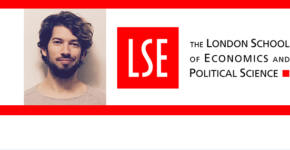Month: June 2017
-

Noelle Nelson, University of Kansas – Working Memory and Satiation
Some of us can get tired of a song quickly, while others listen over and over again. Noelle Nelson, assistant professor of marketing and consumer behavior, at the University Of Kansas School Of Business, examines whether working memory can help decide whether we get tired of something in a hurry, or not at all. Noelle…
-

Colin Camerer, California Institute of Technology – Testosterone
Does testosterone increase mental mistakes? Colin Camerer, professor of behavioral economics at the California University of Technology, examines this question. Colin Camerer is a pioneer in behavioral economics and in neuroeconomics. He is interested in how psychological forces and their deeper neuroscientific foundations influence economic decisions involving individuals and markets. In his research, he uses…
-

Joseph Bennett, Carleton University – De-Extinction
Should we bring species back from extinction? Joseph Bennett, assistant professor and conservation biologist at Carleton University, explores if making a real life Jurassic Park would be a good idea. Joseph Bennett is a conservation biologist and Assistant Professor at Carleton University in Ottawa, Canada. Research in his lab focusses on statistical and mathematical tools…
-

Matthew Pase, Boston University – Diet Soda and Accelerated Brain Aging
Put down the diet soda. Matthew Pase, fellow in the department of neurology at the Boston University School of Medicine, looks into whether diet drinks are more harmful than previously thought. Matthew Pase is a fellow in the MED neurology department at Boston University Medical School and an investigator at the FHS. Diet Soda and…
-

This Week On The Academic Minute (2017.6.19)
This Week on The Academic Minute 2017.6.19 Monday, June 19th Matthew Pase of Boston University determines if drinking diet soda can accelerate brain aging. Tuesday, June 20th Joseph Bennett of Carleton University discusses if de-extinction is worth the cost. Wednesday, June 21st Colin Camerer of the California Institute of Technology delves into whether an increase in testosterone…
-

The Academic Minute for 2017.6.12-6.16
Academic Minute from 6.12 – 6.16 Monday, June 12th Shelby Putt – Indiana University Functional Brain Networks and Early Stone Tools Dr. Putt is a Postdoctoral Research Fellow at the Stone Age Institute and the Center for Research into the Anthropological Foundations of Technology at Indiana University. She holds a PhD degree in Anthropology from…
-

Steven Pirutinsky, Touro College – Practicing Religion May Benefit Some But Not All
Religious practice can lead to lower depression for some, but what about the non-religious? Steven Pirutinsky, assistant professor in the graduate school of social work at Touro College, looks into whether the non-religious would benefit from religious practice. Steven Tzvi Pirutinsky, Ph.D., is assistant professor at Touro College Graduate School of Social Work. He teaches…
-

Abraham Palmer featured on The Best of Our Knowledge
As always, host Bob Barrett selects an Academic Minute to air during The Best of Our Knowledge. Each week this program examines some of the issues unique to college campuses, looks at the latest research, and invites commentary from experts and administrators from all levels of education. For this week‘s edition (#1395), Bob has selected…
-

Jeffrey Gardner, University of Maryland Baltimore County – Bio-prospecting
We’ve all heard of gold rush prospectors, but how about bio prospectors? Jeffrey Gardner, Assistant Professor in the Department of Biological Sciences at the University of Maryland Baltimore County, explores how we can find better ways to make the products we use today. Our lab is focused on understanding the metabolism and physiology of bacteria,…
-

Jonathan Mijs, London School of Economics – Inequality
Inequality is getting worse in the United States. Jonathan J. B. Mijs, assistant professorial research fellow at the London School of Economics, examines whether more people are noticing. Jonathan earned his Ph.D. in Sociology at Harvard University. He is interested in stratification, morality, and the balance of structure/agency in shaping life outcomes. Presented in this…
